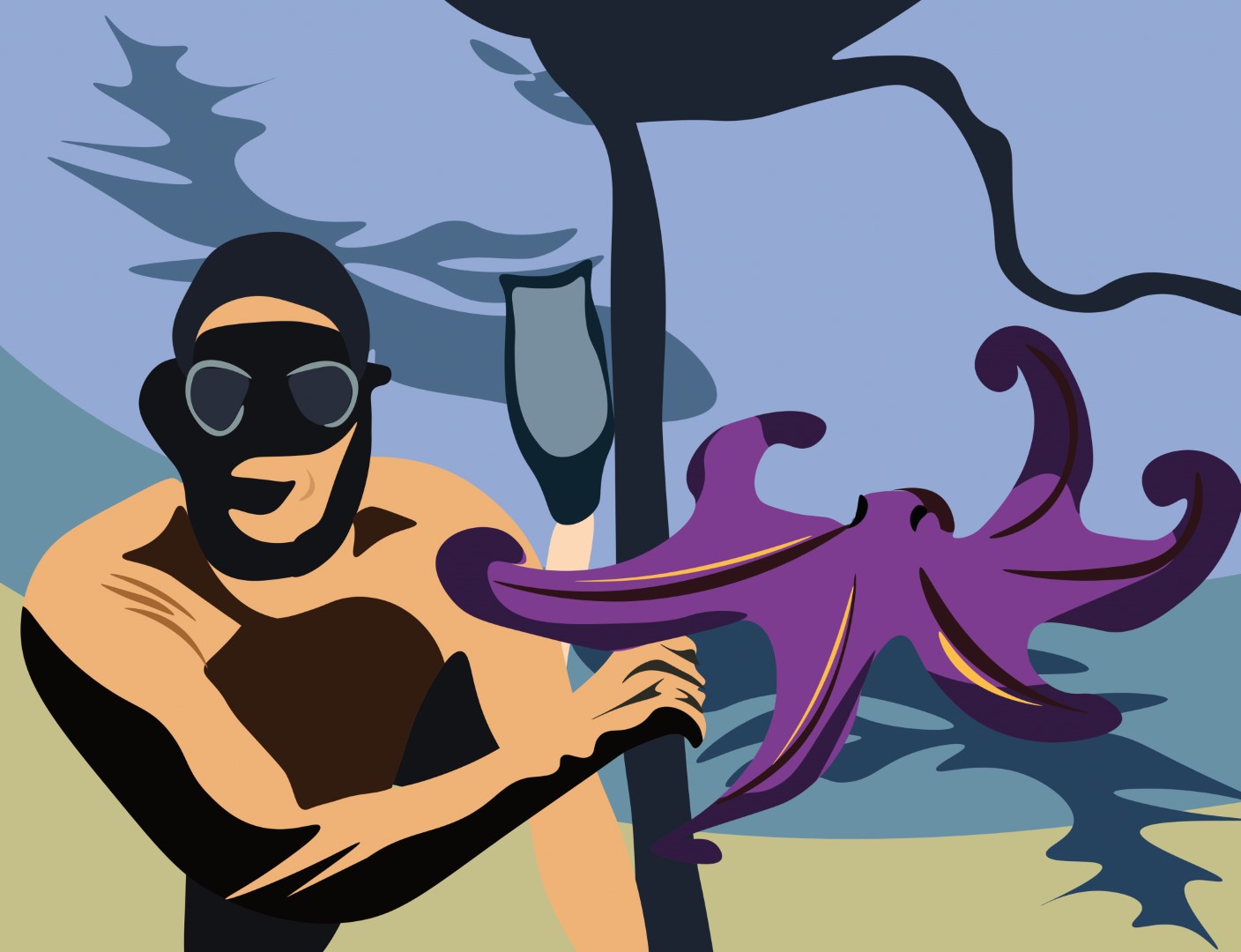
Nature is life’s greatest teacher in this documentary
By Jessica Berget, Assistant Editor
4/5
The octopus is attacked by a shark and gets a tentacle bitten off, but much to the relief of the audience, it grows a new tiny tentacle soon after.
If you’re an animal lover and fascinated by big seas and ocean life, this movie will not disappoint. The story revolves around a documentary filmmaker befriending an octopus by visiting it every day (he literally goes scuba diving every single day to see her, even in dark and dangerous conditions) and the lessons he learns about life from admiring the wild creature. My Octopus Teacher is a heartwarming, bittersweet, and educational story that will stick with you for days after watching.
Craig Foster, the starring documentary filmmaker, explains how he was depressed and burnt out before making this film. One of his greatest hobbies is free diving in a kelp forest located at Cape Peninsula in South Africa where he encounters a strange shape covered by shells. It turns out to be a Pacific Red octopus and Foster is fascinated with the creature and vows to go diving every day to forge a relationship with and learn more about her.
As the movie progresses, Foster becomes closer to the octopus and it even begins to recognize and become almost affectionate with him. They say octopus are one of the most intelligent creatures on the planet and watching how it hunts, hides from predators (by covering itself with shells), and how it turns itself into different colours, shapes, and sizes shows how incredible they really are. There are also some stressful yet tender moments when the octopus is attacked by a shark and gets a tentacle bitten off, but much to the relief of the audience, it grows a new tiny tentacle soon after. It’s these moments that make the end of the film so tough to watch.
This movie is more than just a story about a man and an octopus as it also has an educational tone, and you learn about the life of this particular kind of octopus. For instance, the viewers learn that the life span of a Pacific Red octopus is very short (about 18 to 24 months), so the ending of the movie shouldn’t be a surprise. However, while watching how Foster cares for the creature when she becomes a mother, you still feel the dread when the octopus shows signs of weakening while taking care of its eggs. (As we learn in the film, female octopus die immediately after caring for their eggs as they use all their body’s energy to nurture them.) The somber tone of the film and the way Foster speaks about the octopus in past tense also makes it obvious how this movie ends. Yet, it still hits you when he talks about the creature’s last moments paired with footage of its lifeless body floating in the ocean deep—and then seeing it get eaten by pyjama sharks. As Frank Sinatra’s famous song would say, “That’s life.”
Aside from the wonderful story, one thing that sticks out in this film is the amazing ocean and underwater views in the cinematography. Much of the documentary takes place underwater which has a calming and quiet environment; you almost feel you are underwater as well, so the viewer feels at ease (or stressed out, depending on the weather) and more connected to the story. It’s also a sweet length of 85 minutes so it never feels like it’s dragging on.
One thing I was worried about while watching this is that it would focus too much on the environmentalism aspect and not the story itself, but I was pleasantly surprised that they didn’t take this angle (which, let’s be honest, has been done to death).
I would recommend this movie to anyone who loves ocean life and wants to have a more intimate knowledge about the life of an octopus or if they’re just looking for a great documentary. As great as this movie was, it is not something I would personally watch more than once because of how emotional it is (which is why I only gave it a four out of five stars). Nonetheless, it is a fantastic story that deserves to be seen at least once.



